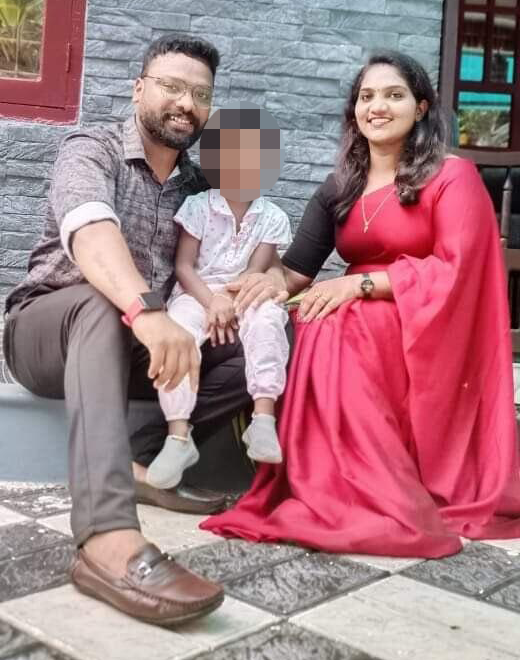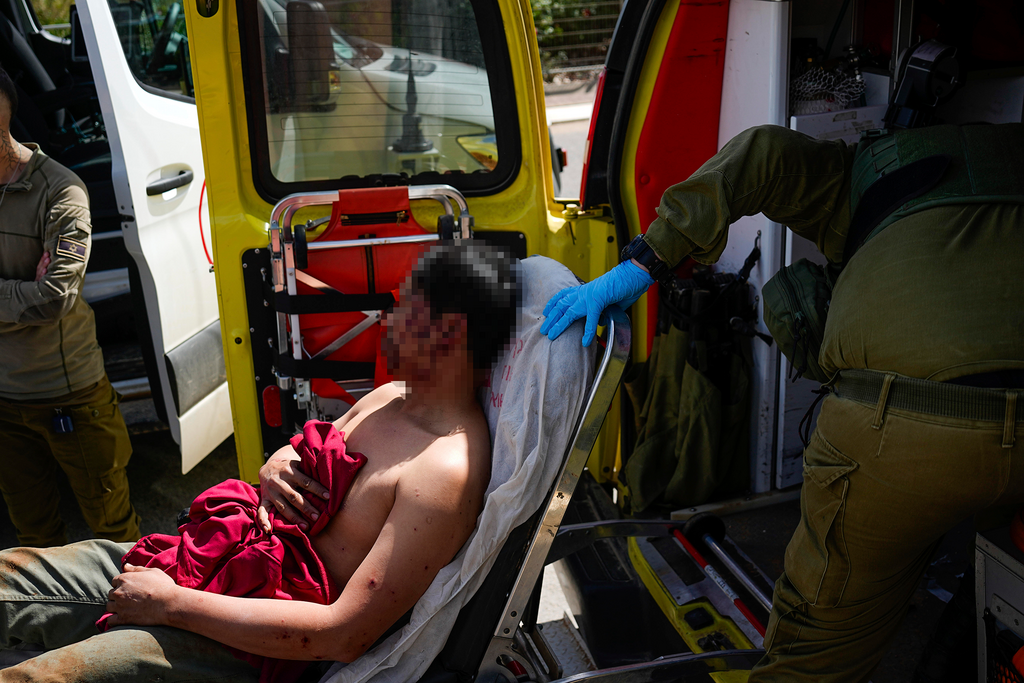Getting your Trinity Audio player ready...
Patnibin Maxwell, 31, was killed on Monday by a missile fired by Hezbollah terrorists at Moshav Margaliot in the Upper Galilee near the border with Lebanon. Seven of his colleagues were also injured in the missile strike on the field, two of them in critical condition. Maxwell arrived in Israel about three months ago to work in agriculture, leaving behind his five-year-old daughter and his wife, who is pregnant.
"He would wake up at 4:00 a.m. and work all day, from 6:00 a.m. until 7:00 p.m., even on Fridays, and sometimes even on Saturdays. He wanted to work as much as possible and send money to his family, that's what mattered to him," said his friend, Soni Kucheria, a caregiver from India.
Read more:
"There are still people like Patnibin who continue to work despite the danger because they need to support their families. That's why they come here," Kucheria added. "He came to Israel despite the ongoing war because there is no work in India."
Yesterday's attack marked the highest number of casualties in a single event from Hezbollah rocket fire since the beginning of the war, and all of them are victims of a conflict in which they have no involvement. In addition to Maxwell, seven other foreign workers were injured, two of them remain in serious condition.
The Indian Embassy in Israel issued a warning on Tuesday for Indian citizens working near the southern and northern borders of Israel, advising them to relocate to safe areas far from the border.
"The death of Patnibin Maxwell is a result of known negligence," said Shira Abu, the director of the Public Relations Department at the Refugee and Migrant Center. "Maxwell and his injured colleagues were recruited to work in Israel in recent months, even during the war. Israel shamelessly continues to recruit more and more agricultural workers from around the world, and then sends them to work under fire, risking their lives."
Abu stressed the importance of Israel's ability to defend its northern border, suggesting that if it is unable to do so, declaring it as a closed military zone would be a better option than sending innocent civilians who have traveled from around the world to earn a living and secure a future for themselves and their families. The Kav La'Oved-Workers Hotline organization echoed this sentiment, acknowledging that foreign workers are unintentionally injured and killed in every round of fighting. They highlighted the vulnerabilities faced by these workers, including their dependence on employers, inability to evacuate from settlement areas, and the lack of shelters and safe rooms in their residences.
Currently, these workers reside and work in border communities that Israelis have evacuated. The organization emphasized how inconceivable it is that employers repeatedly place these individuals, who have come from distant parts of the world seeking a livelihood, in close proximity to danger to ensure food security for Israeli citizens. They emphasized that it is the responsibility of the state and employers to prioritize the well-being of these workers, rather than leaving them to work in hazardous environments. Just two weeks ago, a missile struck Moshav Margaliot, destroying a trailer on-site. Today, the continued risk of a similar missile strike poses a potential threat to human lives.



